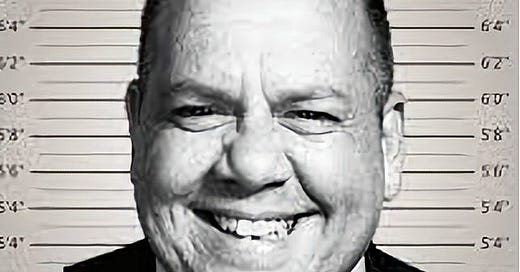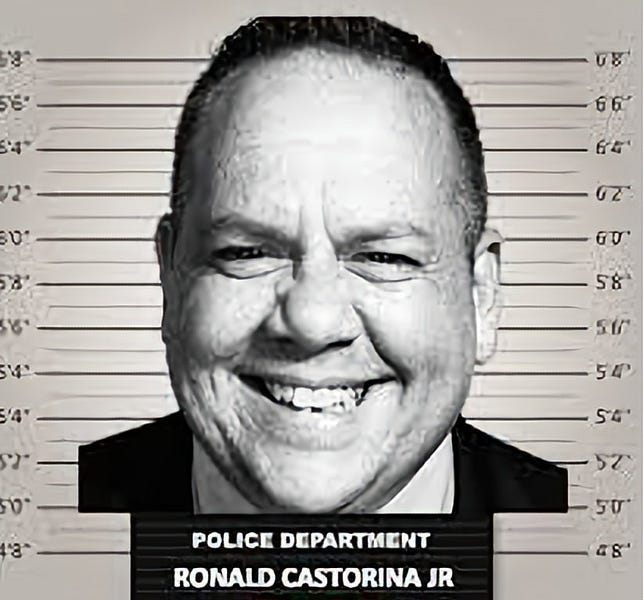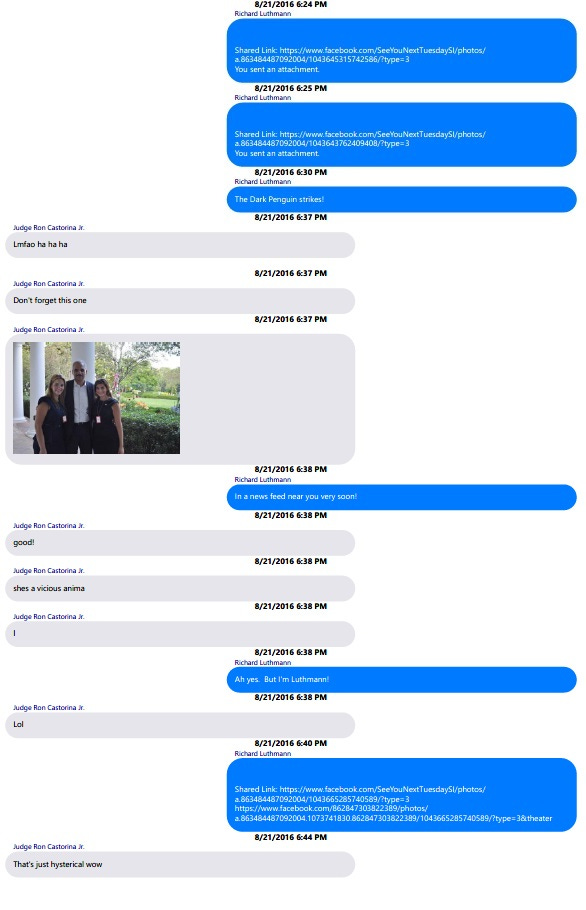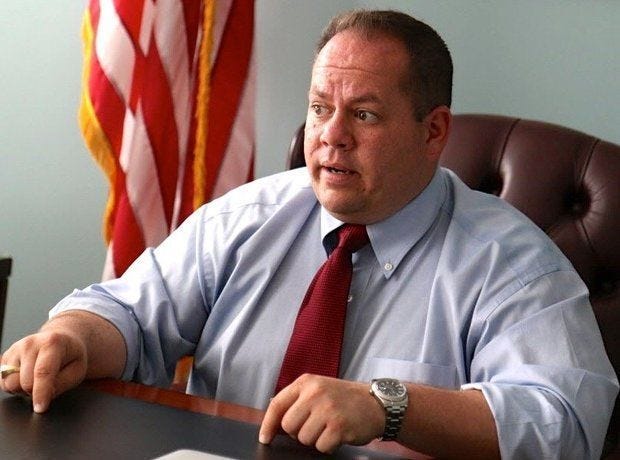By Dick LaFontaine and Rick LaRivière, with Richard Luthmann
Michael Perez entered Justice Ronald Castorina's Staten Island courtroom as a pro se litigant, unable to afford an attorney. He planned to explain why he had his wife’s car.
Perez believed his case was clear. At the time of the Family Court status quo order, he had her car, and she had his. With an order of protection, it wasn’t like they could meet and swap vehicles.
He had submitted papers outlining the circumstances, but Judge Castorina declined to read them.
The judge dismissed Perez’s arguments.
“You’re taking the bus home. Give me the keys,” the judge ordered.
Perez said his belongings were still in the car. Castorina ignored his pleas.
Perez, a man struggling without legal representation, walked out of the courtroom without his car, possessions, or hope for justice.
This ruling reflected a troubling trend in Castorina’s courtroom—where pro se litigants like Perez often face impossible odds against a judge who selectively applies the law.
“I don’t know what more I could do,” Castorina said during the hearing. “You’re in default because your motion wasn’t filed correctly.”
Castorina considers himself a paragon of fairness. In this case, “fairness” was Perez’s belongings tossed into a garbage bag and dropped at the courthouse’s front doors while the litigant was left to find his way home.
“I’m sorry, but you know, I follow the law,” Castorina declared from the bench.
Really, Ron? Listen and decide for yourself:
For Perez, who couldn’t afford a lawyer, Castorina’s courtroom became a trap. His inability to navigate the complexities of legal paperwork meant that Castorina didn’t even consider the merits of his case. Perez’s attempt to comply with the court’s requirements was not enough for Castorina, who punished the man for his lack of legal expertise.
A Pattern of Bias and Abuse
Perez’s case is just one example of the arbitrary decisions that have become synonymous with Castorina’s courtroom. Retired NYPD Detective and 9/11 responder Guy Simonetti fell victim to Castorina’s rulings. Disabled and living in Florida, Simonetti was dragged into a contentious divorce case that became a nightmare.
Simonetti faced financial hardship and severe health issues, which prevented him from attending court in Staten Island. Despite knowing Simonetti’s situation, Castorina issued a bench warrant for his arrest just before Christmas 2023. The judge suggested Simonetti should take a “private ambulance” to court, knowing Simonetti could not afford such an expensive Florida to NYC service.
Simonetti, already facing life-threatening health issues, found himself battling not only his divorce case but also the vindictive actions of a judge determined to punish him.
Castorina’s conduct caught the attention of New York State Supreme Court Justice Paul Marrone, who vacated the arrest order in May 2024. Marrone’s ruling allowed Simonetti to return to New York without fear of incarceration and, permitted him to be with his dying father in his final days.
“Thanks to Justice Marrone, I got to say goodbye to my father,” Simonetti shared, expressing deep relief.
A Judge Accused of Corruption
Beyond the biased rulings in his courtroom, Justice Castorina is the subject of serious allegations of corruption. Richard Luthmann, a former attorney turned investigative journalist who writes for this outlet, has filed detailed legal claims accusing Castorina of engaging in a broad conspiracy to destroy his career. Luthmann provided background and comments for this article.
Luthmann’s lawsuit, filed in Manhattan State Supreme Court, presents well-documented accusations that Castorina lied to federal agents and engaged in political smear campaigns designed to undermine his opponents.
Luthmann alleges that Castorina, along with NYC Council Member Kamillah Hanks and her partner Kevin Barry Love, falsely accused him of harassment and witness intimidation to violate his supervised release.
“They lied to the feds, and that’s a felony,” Luthmann stated.
According to the lawsuit, these fabricated charges were part of a coordinated effort to send Luthmann back to prison, even though there was no legal basis for the accusations.
The case doesn’t stop at false reports to federal authorities. Luthmann’s court filings also claim that Castorina perjured himself during a 2018 grand jury proceeding. Luthmann asserts that Castorina lied under oath about his involvement in orchestrating fake Facebook pages aimed at smearing political rivals.
According to Luthmann, Castorina provided key materials for these pages, part of a larger political operation designed to destroy opponents’ reputations.
Luthmann describes Castorina’s actions as part of a broader pattern of dishonesty.
“They knew what they were doing. They were using their political connections to try and crush me,” Luthmann said.
His lawsuit aims to expose the depth of Castorina’s involvement in these smear campaigns and his repeated lies to cover them up.
Ronald Castorina, Jr. Perjury, Nelson Complicity Irrefutably Detailed
Frank Parlato from the Frank Report (www.frankreport.com) has been covering Richard Luthmann’s prosecution for fake Facebook that lampooned political players in Staten Island, New York.
The accusations paint a troubling picture of a judge willing to abuse his power to advance his interests. Luthmann’s claims, which are well-documented and supported by court filings, suggest that Castorina’s dishonesty goes far beyond the courtroom and into the realm of political corruption.
The Need for Justice
Michael Perez, Guy Simonetti, and Richard Luthmann are just a few of the people whose lives have been upended by Justice Ronald Castorina’s actions. In the courtroom, Castorina has shown a clear pattern of bias against those who are least able to defend themselves. His refusal to read valid submissions, his arbitrary decisions, and his disregard for the circumstances of pro se litigants like Perez demonstrates a judge who is unfit to serve.
Outside the courtroom, the allegations against Castorina only grow more serious. Luthmann’s well-documented claims of political corruption, false reports to federal agents, and perjury reveal a judge who is willing to lie and manipulate the system to his advantage. If proven, these accusations could lead to felony charges and the end of Castorina’s judicial career.
Castorina has acted with impunity for too long, protected by his position and connections. But as more people like Perez, Simonetti, and Luthmann step forward to challenge his rulings and expose his dishonesty, the tide may finally be turning against him.
The stories of Perez and Simonetti illustrate the real harm Castorina’s decisions have caused. Both men found themselves trapped in a legal system that was supposed to protect them but became a vehicle for Castorina’s personal agenda. Their experiences and serious allegations against Castorina suggest that his time on the bench should come to an end.
Justice must be restored on Staten Island. For Castorina, that means being permanently removed from the bench and sent home from the courthouse on the city bus.


























Share this post